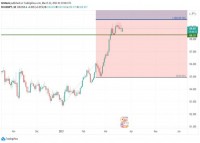|
The implementation of AIFMD across the Eurozone hasn't been without its speed bumps. Rules have been unclear, and hard to follow for small managers and in some cases it took the technology a while to catch up. Things are starting to get easier though, according to delegates at the inaugural Opalesque Ireland Roundtable, they say the important thing is ensuring consistency, and right-sizing the compliance team for your fund. "AIFMD continues to present challenges for managers, but also opportunities," says Andrea Kelly of PwC. "Operationally, the difference in the reporting requirements under Annex IV of AIFMD and form PF under Dodd Frank are causing headaches for fund managers. There are some similarities but also a lot of differences between them." Even with that challenge, Kelly feels as though we are at a tipping point in terms of more managers figuring out the compliance and marketing into the Eurozone. "I think it’s very much a two-pronged process in terms of looking at the US managers. Certainly a year ago many of them were still undecided with respect to AIFMD and marketing products in Europe. I think that has started to change in terms of what has been happening, but as I mentioned earlier, there is a nervousness around reverse solicitation." This sentiment is echoed by Andrew Meleady of Abbey Capital, who sees long term benefits for fund managers that register. "AIFMD has been somewhat frustrating in the short term, however the longer term benefits should outweigh those frustrations. Abbey became authorized as an AIFM in July 2014, and again, we have previously sold into Europe under the private placement regime. I think the frustration for many post registration is that not all of the European countries have allowed non-EU AIFs to be marketed yet. The likes of Italy and Greece have delayed any progress on this end. This means that those markets are unavailable from a marketing perspective for non-EU AIFs until they are required to sign up which will more than likely be in 2018. For us, I see some opportunities being lost as a result of this approach by certain countries." "My sense of what this means for our industry is that you’ve just got to build up your legal and compliance team. Adding more specialized skilled resources does result in an increase in the cost of doing business and acts as a greater barrier to entry for newer CTAs. But if you are attempting to attract assets from institutional investors, my sense would be that they expect you to tick the box from a regulatory standpoint, whether that be as an AIFM or as Registered Investment Advisor with the SEC." All delegates agree that "right-sizing" your business is key to maintaining the business over the long term. Even though the barriers to entry in Ireland and the Eurozone are high - especially for those managers who also have to report in the US, there is a clear benefit to being able to market to the European investor base. And, in the short run this may mean a bit of a jobs boom for Eurozone funds as they scale up accordingly. "We are probably talking about teething issues with so many different developments within the overall industry and a blizzard of new regulations and rules, but things are really ramping up and there are big opportunities for the right players a little head of the curve. In terms of our own business, right now we are hiring more people in Dublin, we are already at a headcount of eleven, up from one person 18 months ago," says John Lowry of ML Capital. Read the rest of the conversation in the Opalesque Ireland Roundtable. Article source - Opalesque is not responsible for the content of external internet sites |
Industry Updates
Opalesque Roundtable: Right-sizing compliance is key to a long-term hedge fund business
Friday, August 14, 2015
|
|





 RSS
RSS







